Enhancing Fertility with Nutrition
Whole Food Based // Nutrient Dense // Anti-Inflammatory // Antioxidant Rich // Hormone Regulating // Blood Sugar Stabilizing
When it comes to fertility, pre-conception preparation and regulating your hormones, what you eat is absolutely the most important factor to prioritize. A majority of fertility challenges can be overcome both safely and naturally. Nutrition is the foundation of a healthy pregnancy. Getting the proper nutrients needed, keeping your blood sugar stable, and reducing your toxic load can all be managed with proper nutrition. It is also important to remember that ultimate goal is not just becoming pregnant, but having having a healthy baby and healthy mama as well. Using food and specific nutrients before becoming pregnant will reduce the risk of birth defects and lead the way for a healthy pregnancy. I always encourage both partners to get on board with this fertility nutrition plan. It takes two to tango!
Fertility nutrition includes nutrient dense foods that are required for hormone production and communication, follicle growth, sperm health, healthy endometrial lining, fetal development, and much more. It lays the foundation and provides the building blocks to provide life to a healthy child.
4 GUIDELINES TO FOLLOW
- Don’t skip meals (especially lunch and dinner). Intermittent fasting a few times a week by skipping breakfast is okay as long as you don’t have blood sugar disorder.
- Eat every 2-3 hours.
- Eat a Protein, Fat, and a vegetable Carb with every meal and every snack when possible.
- Eat twice as many vegetable as fruits over the course of the day.
Following these simple guidelines provides the framework that will help stabilize your blood sugar throughout the day and help your body use the glucose efficiently to keep your energy up where it needs to be.
FERTILITY NUTRITION PLAN
Daily
- Every morning start your day with 1 quart of water. Add lemon is you prefer. Hydration throughout the day is very important.
- Dark Leafy Greens
- Cruciferous Vegetable (broccoli, cauliflower, brussel sprouts, cabbage, arugula, bok choy, collard greens)
- Colorful Vegetable (eat a variety of types and colors)
- 1-2 Eggs
- 1 serving Nuts (except peanuts)
- 1-3 servings fresh Fruit (eat a variety of types and colors)
- Healthy Fat (coconut oil, avocado, grass-fed butter, olive oil)
- Lean Protein (chicken, fish, turkey, fish, beef, etc.)
Weekly
- Lentils or Beans 2x a week
- Grass-fed Red Meat 3x a week
- Cold water Wild-caught Fish 2-3x a week
- Liver or Caviar 2x a week (You can do it! Some of the most nutrient dense foods on the planet!)
- Bone Broth 2-3x a week
NUTRIENT DENSITY
Grass-Fed, Wild-Caught, Organic Meats
Adequate protein intake from a variety of sources is essential for hormone health as it supplies iron, omega 3s, B12, and amino acids. Although there are many vegetarian foods that contain protein, the most bio-available sources are animal protein. Include as much of a variety of animal proteins as you are able to. It is completely safe and healthy to consume red meat as long is it is from a good source. Examples include:
-
- Beef, lamb, goat, venison, other wild game
- Turkey, chicken, quail, rabbit, goose, duck, etc.
- Wild Fish (if possible)
- Mussels, crabs, clams, oysters, sardines, etc.
- Vegetarians***High quality protein powder (Pea, Rice, or Whey as long as it is cold pressed/undenatured). I recommend the Prenatal Protein Powder by Seeking Health.
Cruciferous Vegetables
Cruciferous vegetables are among some of the most therapeutic foods that we can eat. Beyond all the vitamins, minerals, and fiber provided by these super veggies, they also provide the compounds glucoraphanin and sulforaphane. These two compounds offer protection from and elimination of toxins. Supporting your liver and detox system is one of the pillars of hormone health. You need a healthy liver to metabolize your estrogens and maintain proper estrogen/progesterone ratio. They also provide antioxidant support and anti-inflammatory actions. I could go on and on, so eat up!
Colorful Vegetables/Fruit
Eat the rainbow! The best way to get the whole spectrum of nutrients from food is the eat a variety of types and colors. Colorful foods provide a variety of phytonutrients and antioxidants. Antioxidants help to neutralize the damaging effects of free radicals and environmental toxins. Both the ovum and sperm are highly vulnerable to oxidative stress, which can alter the DNA of a future child. It is important for BOTH partners to be consuming adequate antioxidants.
Fats
Fats provide energy, help with absorption of fat-soluble vitamins and nutrients, aid in hormone production, reduce cravings, keep you satisfied and feed your brain! The saturated fats in animal protein should not be avoided, especially when one is trying to improve their fertility as these foods are full of fat soluble vitamins A, D, E and K which will help improve egg quality and reproductive health. Be sure to use only organic fats as fat cells are storage houses for toxins so eating organic fats will reduce your exposure to harmful chemicals being sprayed or fed to the animals. When it comes to hormone production, cholesterol is your friend! Did you know that cholesterol is the precursor to all your sex hormones (estrogen, progesterone, testosterone)?
-
- Saturated Fats (*priority fats)
-
- Butter (grass-fed and organic is best)
- Coconut Oil
- Raw (or organic) heavy cream
- Animal Fat (chicken skin, beef fat or marbling, tallow, lard, fish skin)
- Bacon and bacon fat (buy uncured, raw bacon and save the fat to cook with)
-
- Other Healthy Fats
-
- Avocado
- Olive Oil
- Macadamia nuts, walnuts, and cashews
- Cashew butter
- Palm oil or Avocado oil
-
- Saturated Fats (*priority fats)
Grains
So what about grains? This one is up for debate and experimentation within your diet. If you have Celiacs, gluten intolerance, or several food sensitivities then I would recommend avoiding all grains. If you have been struggling with infertility for several years, tried many dietary changes and treatments and still not seeing results, then I would consider a grain-free diet. For everyone else, I believe that gluten-free pseudo grains such as quinoa, wild rice, amaranth, and millet are fine to include in moderate amounts.
FERTILITY SUPERFOODS
Eggs
Egg yolks provide Vitamin D, B12, and Protein. Make sure to find eggs which are free-range and have deep orange/yellow yolks. If you can find farm fresh, all the better! General factory farmed eggs do not provide the same nutritional value.
Liver
This is a tough one for people to wrap their head around. Organ meats are some of the most nutrient dense foods there are. They provide Vitamin D, Zinc, Selenium, Iron, Folic acid, B12, CoQ10, all fertility nutrients! One way that you can make liver palatable is to make pate’ with chicken liver and then spread it on whole grain crackers a couple times a week. Make sure to use liver from grass-fed / free-range animals only.
Bone Broth
Bone broth has a wide variety of healing properties. Homemade broth is rich in calcium, magnesium, phosphorous, amino acids, glucosamine, chondroitin and other trace minerals. Bone broth has the ability to repair the integrity of your intestinal lining. Healing your gut allows for optimal nutrient absorption and bioavailability and hormone production.
Nuts and Seeds
Nuts and Seeds provide Omega 3s, Zinc, Vitamin E, and Protein. Essential fatty acids and zinc are sensitive to heat and can be destroyed if cooked, so it is best to eat them in their raw form. The most nutrient dense nuts and seeds are walnuts, flax seeds, hemp, chia seeds, pumpkin seeds, sesame seeds, sunflower seeds, and almonds.
FOODS TO AVOID
- All Processed Grains (bread, tortillas, gluten grains, cereal grains, oatmeal, anything made from flour including “gluten-free” products). Whole Pseudo-Grains (wild rice, quinoa, amaranth, etc.) is okay in moderation.
- All commercially produced Dairy products (milk, cheese, yogurt, cottage cheese, cream cheese, sour cream, ice cream, etc.); Raw, grass-fed dairy is fine in moderation.
- Non‐fermented Soy (read all labels; commonly found in processed foods and common items such as mayonnaise, salad dressings, and protein bars) Miso, natto, tempeh, and shoyu are fine. Processed soy is shown to have estrogen mimicking properties.
- Caffeinated products (coffee, sodas, black tea, energy drinks, etc.). Green tea is fine as well as dark chocolate (74% or higher). ONE cup of Organic coffee daily is okay if you “need” it.
- Refined Sugar or highly processed sweeteners (white sugar, Stevia, Xylitol, Agave, Pasteurized ed Juices, etc.). Raw honey and Grade B Maple Syrup okay in moderation.
- Processed and Cured Meats (deli cuts, charcuterie, spam, canned meats, etc.)
- GMOs and Non-Organic Foods – Reduce your toxic load!
The key to success on your natural fertility journey it to take steps on a daily basis, every single day. Eating a healthy fertility diet is one of those daily steps. Consistency is how you get the greatest results. Fertility nutrition is step ONE of any fertility plan. Regardless if you are going all natural or with some assistance, diet is going to play a roll in having healthy fertility, balanced hormones, and safe pregnancy.

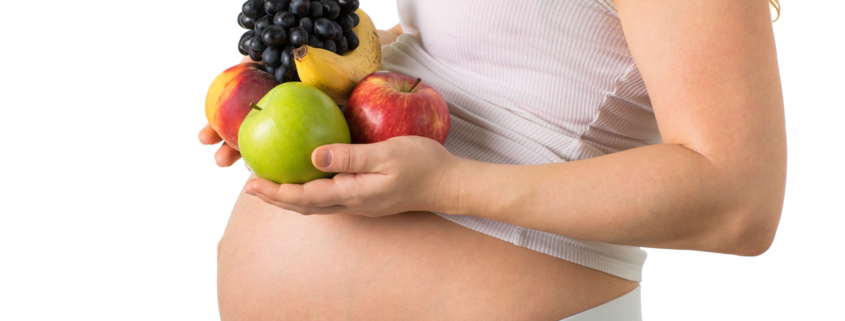
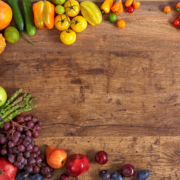
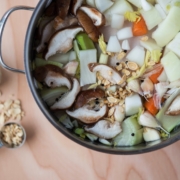


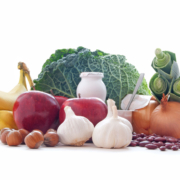
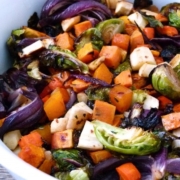
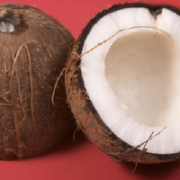


Great! and I thought I knew a thing or two about thises subjects….doesn’t sound like it 🙂
I am so glad to see that you are thriving. GOOD!!! It makes me feel gratified to know that you are staying afloat and surviving irrespective of your setbacks!!!
Hey there would you mind stating which blog platform you’re working with?
I’m going to start my own blog in the near future but I’m having a difficult time making a decision between BlogEngine/Wordpress/B2evolution and Drupal.
The reason I ask is because your design seems different then most blogs and I’m looking for something completely unique.
P.S Apologies for getting off-topic but I had to ask!
WordPress.